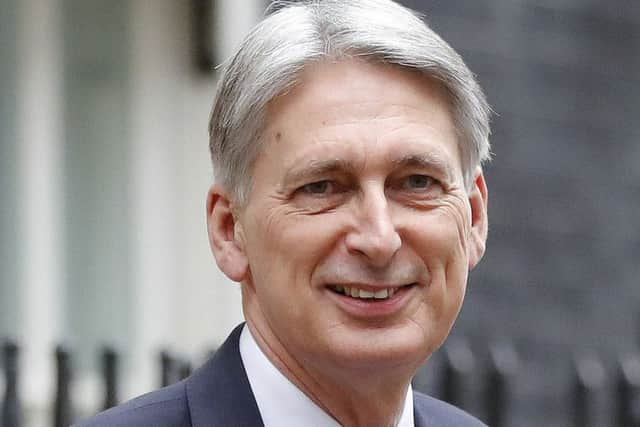Leader comment: How London prices helped Scotland's first-time buyers
With first-time buyers in Scotland needing an average deposit of more than £21,000, it’s hardly surprising that many have turned to the “bank of mum and dad” for help.
But, until Philip Hammond’s surprise decision to abolish stamp duty for first-time buyers of homes worth up to £300,000 south of the border, there appeared to be no sign of any extra help from the Scottish Government. Indeed, a family construction firm, Mactaggart and Mickel, was first to step into the breach yesterday, announcing it would essentially match the Chancellor’s largesse and pay the land and buildings transactions tax (LBTT) on Scottish houses sold for up to the same amount until April.
Advertisement
Hide AdAdvertisement
Hide Ad

Some might see this as a media-savvy move designed to get publicity, but if so it was an expensive one, given it could cost the firm up to £4,600 for each home covered by its pledge. More likely, it was a sign of the widespread industry concern at a slow-down in the property market which some have attributed to problems with LBTT, designed to be a fairer alternative to stamp duty but which is in need of reform.
It now seems Nicola Sturgeon has been persuaded – some might say bounced – into helping people in Scotland get on the property ladder, with the First Minister revealing that she was going to “consider whether it is appropriate to give any further assistance”.
Currently homes sold for up to £145,000 are exempt from paying LBTT but Ms Sturgeon suggested this might be increased to £175,000 when she pointed out a house worth that much in Scotland would sell for about £300,000 in England.


LBTT imposes a progressive tax, from two per cent on homes worth more than £145,000 to 12 per cent on those selling for more than £750,000. So Mr Hammond’s decision, which was effective immediately, opened up a considerable discrepancy between Scotland and the rest of the UK.
Differences in taxation and policy are not necessarily bad. After all, the purpose of the Scottish Parliament is to make legislation that is more tailored to our needs and political views.
However, in this case, the slowdown in the housing market and the undoubted problems faced by first-time buyers mean it is a good thing that Mr Hammond – in responding partly to the plight of Londoners who need an average deposit of £100,000 – has forced Ms Sturgeon’s hand.